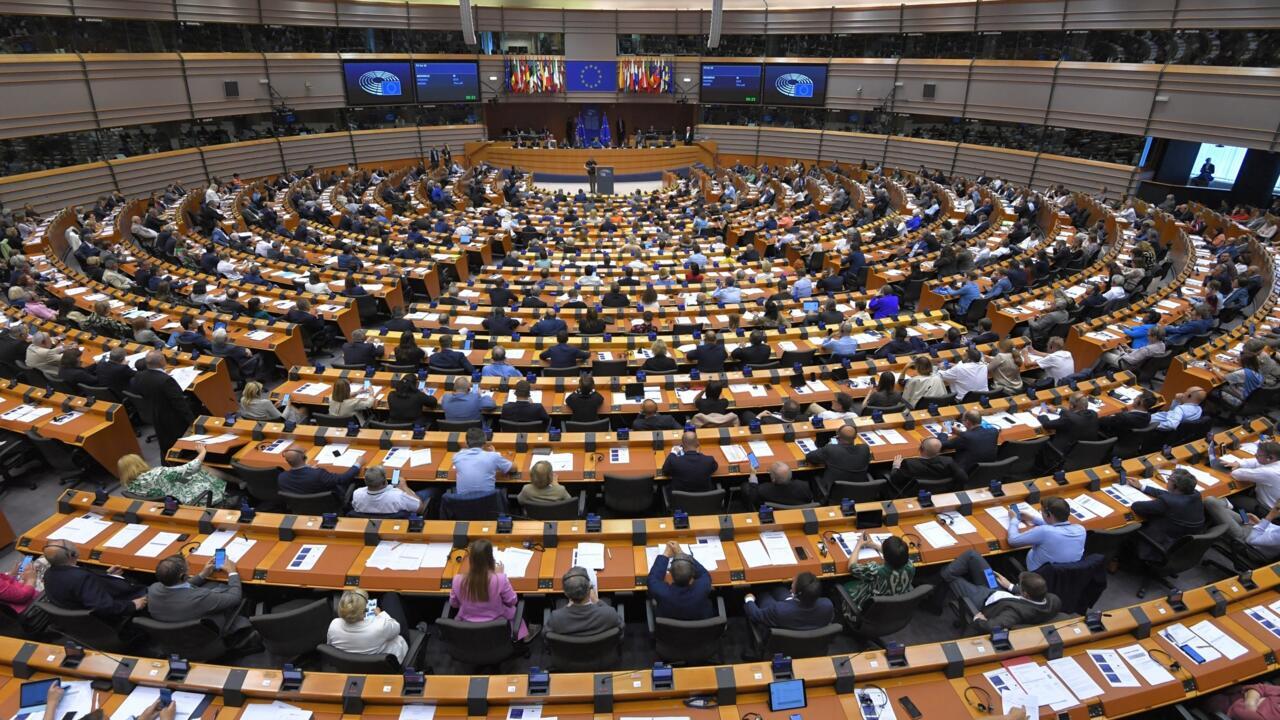The economy today
The carbon border tax voted in the European Parliament
Audio 03:44
MEPs take part in the vote on the revision of the EU emissions trading scheme at the European Parliament in Brussels on June 22, 2022. © AFP/John Thys
By: Anne Verdaguer Follow
3 mins
MEPs voted on Wednesday, June 22, the reform of the carbon market, two weeks after rejecting a first version of this key text of the EU climate plan.
A carbon tax on imports from third countries was notably approved as well as the gradual end of free quotas for manufacturers.
Advertising
A first vote took place
two weeks ago in Strasbourg, but MEPs failed to reach an agreement.
The blockage was tied around the removal of free quotas.
These free quotas, whose inefficiency and cost have been pointed out by the EU Court of Auditors, constitute “rights to pollute”, issued to European industrialists to protect them from excessive international competition.
They will therefore be replaced by the future "carbon border adjustment mechanism", a carbon tax on imports from third countries at the price of European CO2 and which will concern several polluting sectors: steel, aluminium, cement, fertilizer, and electricity.
To reach a compromise, the rate of removal of free quotas has been revised downwards and the effort required of companies will be on a gentle slope: only 7% of these rights to pollute should be removed in 2027, then 9% in 2028, 15% in 2029, 19% in 2030 and, finally, 25% in 2031 and 2032.
Industrial sites will also continue to receive free allowances for their production intended for third countries that do not have a comparable carbon pricing and on condition that they make “green” investments.
The extension of the carbon market to 4 new sectors
The other aspect of this agreement is the extension of the CO2 market to the maritime sector, to that of heavy goods vehicles, aviation and office buildings.
Currently, the European carbon market covers only 40% of the emissions of the Twenty-Seven.
With this new carbon border tax mechanism, the EU can hope to achieve a reduction of more than half of its CO2 emissions by 2030 compared to 1990, this is a promise included in the "green deal". European.
Parliament's compromise will enable the full application of the carbon tax at the borders in 2032. The text also includes a reinforced mechanism for preventing carbon price shocks, as well as restrictions on banks' access to this market, to combat against speculation.
Manufacturers worried about their production costs
According to the alliance of European industries AEGIS Europe, this provision would threaten exports and investments within the European Union but above all also “millions of jobs”.
In concrete terms, European producers who are subject to the carbon pricing market are exposed to a significant risk of international competition, the free quotas which will be phased out allowed them to avoid inflating their prices and to remain competitive.
While the ton of CO2 exceeds 80 euros today on the carbon market, production costs are likely to soar in sectors where manufacturers are already faced with rising energy and raw material costs.
In aluminum and cement in particular.
In Brussels, we promise to support polluting sectors and fight against “
climate dumping
”.
The principle is to increase the costs of polluting products from foreign markets by taxing goods from countries with less stringent environmental standards, and by subjecting importers to the same climate requirements as European companies.
An anti-relocation weapon, it is hoped within the commission.
But be careful not to weaken even more the less developed countries of the world, we claim at Oxfam.
It is in any case a major reform project for the deployment of the “green deal”, the climate plan of the European Union.
It remains to be approved by the Member States.
Newsletter
Receive all the international news directly in your mailbox
I subscribe
Follow all the international news by downloading the RFI application
google-play-badge_FR
Economy
Climate
European Union
Climate change

